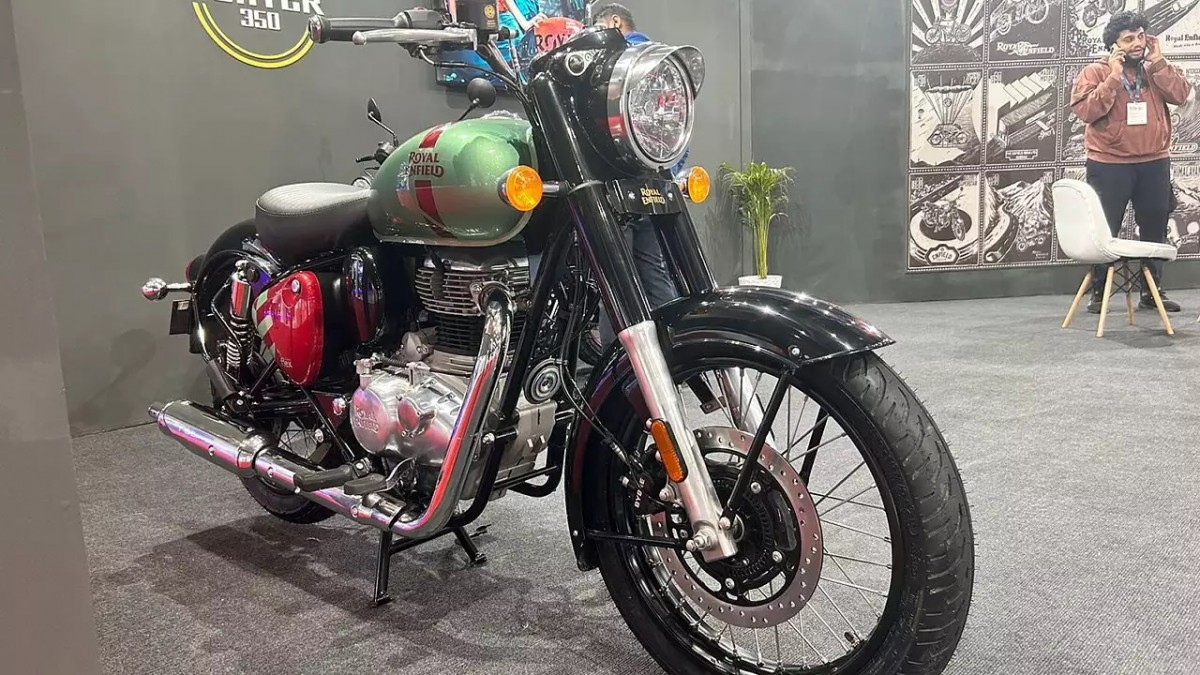

At the Bharat Mobility Global Expo 2024, Royal Enfield showcased its “Classic Flex” motorcycle concept. As the name suggests, the Royal Enfield Classic Flex is a flex fuel concept motorcycle based on the Royal Enfield Classic 350. The brand has not yet revealed if a production version of the Classic Flex is in order. However, Royal Enfield could introduce the motorcycle to align itself with the Government of India’s push towards green mobility and towards reducing greenhouse gases.
The Royal Enfield Classic Flex is likely to run on a blend of petrol and ethanol. The brand has not yet revealed the percentage of ethanol acceptable by the Classic Flex. However, sources reveal that the motorcycle is able to run on ethanol blends of upto 85%. This means the fuel delivery systems and the ECU could have been mildly modified to accept the higher ethanol mix. However, sources suggest that the power and torque figures are likely to remain the same.
Ethanol is an organic compound, an alcohol made by fermenting sugars of starch-based crops such as Corn, Barley or Sorghum. Manufacturers produce the colourless liquid with a viney smell using dry or wet-milling process, fermentation and distillation. Ethanol is also known as ethyl alcohol and is also commonly found in alcoholic beverages like beer, wine and is used as an industrial solvent.
Currently, most petrol pumps in India offer E10 petrol which means it’s a blend of 10% ethanol and 90% gasoline. The Ministry of Road Transport and Highways, in April 2023 passed a mandate for a phased roll out of E20 fuel which is a blend of 20% ethanol and 80% petrol. The Government of India is also likely to mandate the increase of ethanol blend to 25% by 2025.
Use of flex fuel and introducing more ethanol will reduce India’s oil dependency as well as promote the agricultural sector to produce sugar-based crops. In the near future, refineries in India are also likely to convert waste grains and food & beverage waste into high-efficiency ethanol.
High ethanol blends helps reduce the carbon footprint by reducing the vehicular pollution especially in metro cities. Compared to regular gasoline, ethanol produces around 40-50% less carbon emissions. However, Ethanol has less energy per gallon compared to gasoline. Furthermore, the carbon emissions produced in the manufacturing process of ethanol from corn are still questionable.
Also Read: Honda developing Royal Enfield Himalayan competitor for India